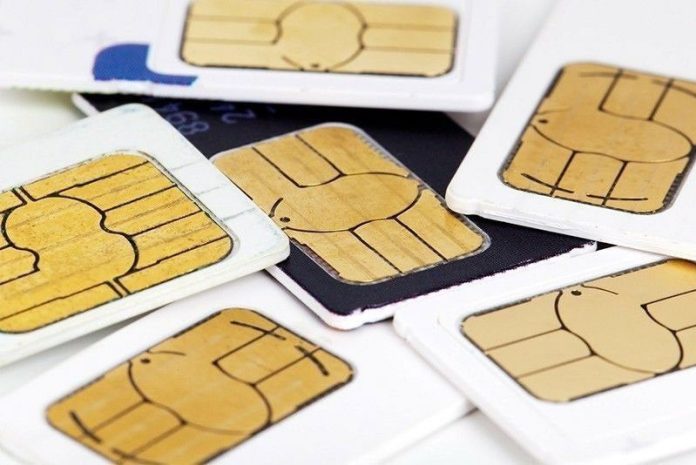Philstar.com, October 10, 2022
MANILA, Philippines — President Ferdinand “Bongbong” Marcos Jr. has signed into law the SIM Card Registration Act, the first legislative measure enacted in his presidency.
Republic Act 11934 entails all subscribers to give their names and addresses to their service providers, raising concerns on security and data privacy.
Agencies will still have to come up with Implementing Rules and Regulations for the measure, but Marcos noted in his speech on Monday that SIM card registration will give law enforcement agencies “tools needed to resolve crimes perpetrated with the use of these SIM cards as well as providing a strong deterrence against the commission of wrong doing.”
Lawmakers pushing for passage of the measure noted the recent proliferation of spam text messages that lead to scams and the hacking of some subscribers’ personal accounts.
“We worked hard to pass the legislation anew as a crucial first step to fend off text scammers, while guaranteeing utmost respect to fundamental human rights,” Sen. Grace Poe said in a statement.Under the law, all SIM card users must register with their telecommunications provider before their SIM gets activated. Existing prepaid subscribers are given a limited time to register before their SIM Card is deactivated or the SIM number is retired.
How do you register a SIM Card with your service provider?
According to a copy of the Senate bill on third reading:
- A SIM card registration form must ask subscribers to disclose their full name, date of birth, and address on top of providing a copy of a valid government-issued ID or other similar documents.
- Juridical entities like companies and businesses must provide a copy of their certificate of registration and either a resolution adopting an authorized representatives or a special power of attorney.
- A minor’s SIM card registration will be named under the consenting parent or guardian.
- Tourists staying for less than a month must register with their passport and address while in the Philippines and their SIM registration form must contain their full name, passport number, and address.
- Foreign nationals in the country either to work or study should register their full name, passport number, and address in the provided form and present their passport, their address in the Philippines, Alien Certificate of Registration Identification Card or ACRI-Card from the Bureau of Immigration and an Alien Employment Permit from the Department of Labor and Employment, if applicable.
“Any information in the SIM card registration shall be treated as absolutely confidential unless accessed to this information as been granted with the written consent of the subscriber,” Marcos said in a speech on Monday.
Information provided to providers may also be disclosed in case of a court order, if a subpoena is issued, or upon the request of a law enforcement agency. It is unclear if subscriber consent will be required in those cases.
Under the law, telecommunications companies will be required to submit a verified list of their dealers across the country. The National Telecommunications Commission will also require firms to submit an updated list quarterly.
Security risks
However, the Computer Professionals’ Union, an organization of ICT professionals and advocates, warned that mandatory SIM card registration has been “proven ineffective in addressing crime and further endangers people’s information.”
The CPU on Monday stressed that “mandatory SIM Registration puts at risk our right to privacy and data protection,” adding that mandatory registration in other countries has been shown to be ineffective and that “has its ill effects as seen in other countries that have implemented it.”
The group further noted that the SIM card registration law does not directly solve the problems that lead to crime.
“Crime is rampant because of poverty, joblessness, inequality, and exploitation,” CPU said.
“Addressing these social ills should be the priority of the government, while ensuring immediate action to resolve immediate concerns do not further exacerbate the people’s suffering or endanger them.”
In statements earlier this year against the vetoed SIM card registration bill, the Foundation for Media Alternatives noted that aside from doubts over whether registration will deter crime, “in some regions, this type of system has even caused the emergence of black markets where stolen or counterfeit SIM cards are sold, as well as an increase in handset theft incidents, as demand for untraceable phones spiked.”
It also noted the potential for abuse by government as well as the risk registration would pose on privacy since SIM card resellers may be “ill-equipped to handle such amount of data, making them more prone to data loss or misuse.”
EngageMedia, which signed the FMA statement, also said that similar measures in Bangladesh, Malaysia, Myanmar, Singapore and Vietnam “have had serious implications on human rights.” — Kaycee Valmonte with reports from Xave Gregorio and Ramon Royandoyan



